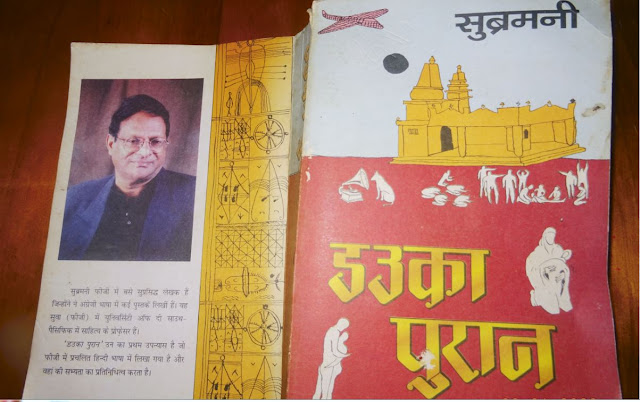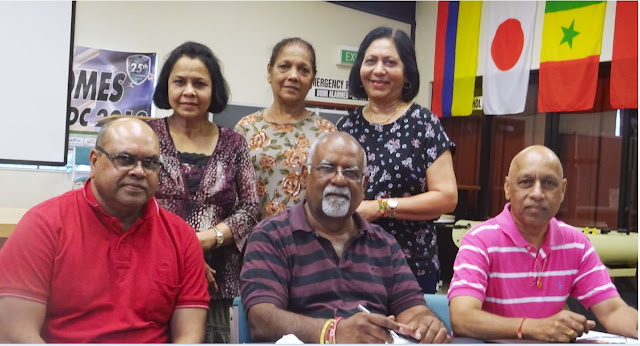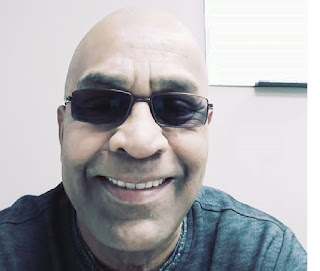AN OPEN LETTER TO FIJI PM: THE GREAT FIJI HINDI DEBATE - AN ASSAULT ON FIJI INDIAN CULTURE THROUGH STEALTH
Dear Prime Minster,
Bula and Happy and a Prosperous New Year.
I lost all avenues and decided to take this unprecedented means to write this open letter to you through my blog, FIJI PUNDIT
This was to get your attention on a very crucial matter affecting my community in Fiji. My blog is seen and read by thousands of your supporters in Fiji Indian Diaspora spread around the world, through social media.
This was originally said by Dante Alighieri, an Italian poet, many centuries ago.
In our lifetime, Martin Luther King Jr, repeatedly quoted it with some addition:
He who passively accepts evil is as much involved in it as he who helps to perpetrate it. He who accepts evil without protesting against it is really cooperating with it.In fact this was also President John F Kennedy’s famous quote based on Dante’s Inferno (Hell), with a slight variation…”…: those who in time of moral crisis preserve their neutrality.
While initially uttered many centuries ago, they still ring true in case of Fiji today.
This applies aptly to Radio Fiji’s unilateral decision to railroad Fiji Hindi in one of its stations, and many maintaining their neutrality in this time of moral crisis. And we do not know where this demolition of our culture will stop.
What I am questioning is not the fact that it has been done, but HOW and the manner of its implementation, and WHY.
Before I venture further, I have some questions, which themselves may be the answers to this sacrilege. Perhaps the public face of this desecration, CEO of FBC Riyaz Saiyad Khaiyum, Shammi Lochan and Roshika Deo can answer them.
Sir, I humbly pose these questions to you as well, as the last one refers to you directly.
And I also challenge those others with influence, power and authority who could have done something, but reserved their “hot places” by maintaining and preserving their “neutrality”.
Please, go ahead, make my day, and answer them:
1) Was such a crucial matter of cultural policy which has the potential to affect the life of a whole community now and into the future, debated in Parliament?
2) What do all those Fiji Indians on government benches think? Are they complicit in this arrant act of cultural vandalism and destruction?
3) Was there any wide public consultation from experts and interested parties instead of being railroaded in this unilateral fashion?
4) Who in and around FBC are even remotely experts in linguistics and effects and impacts of such “bastardization” of language on a culture?
5) And where is Fiji Broadcasting Commission Board? Were they ever consulted, and did they give their green light to fixing of something that was never broken? What are their priorities? Are they sleeping on the job?
6) Use of proper Hindi in Fiji Broadcasting Commission (FBC) was never questioned in its 66 years of existence by its highly QUALIFIED AND DESERVING (my emphasis) Board, CEO, celebrated management and announcers. In fact people studied Hindi to join Radio Fiji. Then who are these minnows to implement this controversial, questionable, unethical and immoral change?
7) And Sir, where are you? Sir, you projected yourself as the saviour of Fiji Indians when on 6 December, 2006, you deposed Laisenia Qarase because of SDL’s ethno nationalism that was hurting Fiji Indian community. Is not Radio Fiji repeating what an ITaukei ethno-nationalist government would have done?
 |
| Is there any monkeying around with Fiji Indian culture, with "bastardization" of Hindi in Mirchi FM? |
Unfortunately Fiji Indians in general and Hindus in particular where this assault is directed seem to have lost the fight and vision that our forebears Girmitiyas possessed. One may question, where is Sanatan? Where is Arya Samaj? Where is Fiji Girmit Council, Brahman Sabha, Pundits and so-called guardians of Hindi Language? Have their respective leadership lost their manhood and become what we call impotent? Are people prepared to sell their souls for political favours, commercial gains and other self-interest through fear or favour?
I must salute TISI Sangam, and its National President, Sadasivan Naicker who took the initiative and lead with a hard-hitting press statement without fear or favour. He delivered Radio Fiji a hard slap:
This is unprofessional and unethical for any medium to promote Fiji Hindi. This is an insult and rape of Hindi language. Erosion of Hindi will have unprecedented negative effects on Hindu religion, and in effect is “standardization “of Hindi.
TISI Sangam was meekly followed by Sanatan, where its National Secretary took the platform of an International Hindi Conference to plead with Radio Fiji not to use a broken Hindi. Labour and NFP also opposed this move by Radio Fiji.
Unlike those who have imposed this unilateral decision to abandon Hindi for Fiji Hindi, I have experience in this matter. I was involved in promoting Fiji Hindi in Fiji media almost three decades ago. I wrote a weekly page in Fiji Times-owned Hindi Weekly, Shanti Dut, in Fiji Hindi, Lo Kar Lo Baat (Let’s talk) in 1990s.
Following popularity of that, Radio Fiji Two adopted that principle. I ran Fiji Hindi program in Radio Fiji in 1999 / 2000, Tanik humri bhi suno, (hey, dude, hear me out) and currently run similar programme, Lo Kar Lo Baat in APNA TV in Auckland.
This was and is merely done to acknowledge FIJI HINDI as our mother tongue. We need to appreciate that in countries where Indian indentured labourers lost their mother tongue, they lost the umbilical cord to Hindi. Fiji was fortunate in that regard.
We had a different breed of Girmitiyas -ordinary people who did extraordinary things in extraordinary circumstances. They preserved their language which in turn led to survival, and in fact, promotion of Hindi.
My use of Fiji Hindi in media was more for entertainment, and an acknowledgement and salute to our mother tongue, and also Hindi.
Eminent and distinguished Ba scholars and authors Jogindar Singh Kanwal and Rajendra Prasad reiterated the importance of Fiji Hindi in an earlier article. They likened Fiji Hindi as a jewel in the crown, Hindi. While a jewel adds colour, glitter and beauty to the crown, it itself can NEVER REPLACE THE CROWN.
I repeat the same thing, with an analogy to food. Fiji Hindi is chutney, condiments which add taste, texture, and flavour to the main course, HINDI. But, chutney cannot be the main course - hence, FIJI HINDI CAN NEVER BE THE MAIN FOOD.
Sir, I plead that nobody has any business to replace Hindi as language in any public-owned radio station.
People of Fiji are worried about some controversial actions of your Government which appears to go against some objectives, intentions and promises you made when you displaced Qarase in 2006. One of them was to protect interests of Fiji Indians which the past ethno nationalist governments trashed on.
Sir, as raised in the last question above, among other things, you removed Laisenia Qarase because of SDL’s ethno nationalism that was hurting Fiji Indian community.
Sir, I plead to you. Perhaps it is time you sat back into Fiji Government’s driver’s seat when it comes to such crucial national matters affecting Fiji and its community.
It cannot be left to amateurs – bereft of any vision.
Sir, I remain a humble servant of the community.
Sincerely,
Thakur Ranjit Singh,
FIJI PUNDIT
[About the Author: Thakur Ranjit Singh is an Auckland-based journalist and a media commentator, who runs his blog, FIJI PUNDIT. He also retains his Fijian citizenship. He has wide and long association with Fiji media, and is a former Publisher of Fiji’s Daily Post newspaper which Qarase’s SDL government closed down]


































